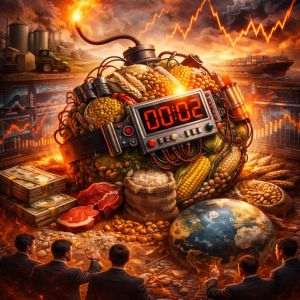Hungarian Prime Minister Viktor Orban was claiming Russia's victory in Ukraine two days ago. According to the website hirado.hu, which quotes the public news agency MTI, Viktor Orban said in an interview with the YouTube channel "Patriot": "We are talking now as if it were a situation of endless war, but it is not. The Ukrainians lost the war. Russia won this war."
Viktor Orban's statement that "the Ukrainians lost the war, Russia won this war" and that the West should recognize this fact, falls more into the register of political rhetoric with strategic stakes than into that of a factual analysis of military reality. Despite the blunt tone, the data and developments on the ground contradict such a definitive conclusion. The conflict between Russia and Ukraine is in a complex and fluid phase, with neither side in a position to declare an absolute victory.
On the military front, the Russian record is far from a complete victory. According to assessments by CSIS and other specialized institutes, Moscow has achieved minimal territorial gains, but has paid for them with huge losses: over 1,149 tanks and over 3,098 combat vehicles destroyed, to which are added numerous other equipment and a large number of soldiers. Progress is slow and extremely costly, and some estimates - as shown by the analysis by The Atlantic - indicate that, at the current pace, it would take Russia over a century to completely conquer Ukrainian territory. The Institute for the Study of War emphasizes that although the Russians have recorded some tactical successes, they have not managed to achieve operational mobility, and their military and economic resources are constantly eroded.
In parallel, Ukraine continues to demonstrate resilience and initiative. His forces recently repelled a Russian offensive in Sumy province, managing to recapture two villages, according to The Wall Street Journal. Western support - logistical, financial and technological - remains significant, and experts from CEPA and other European think tanks believe that Ukraine retains long-term strategic advantages through its capacity for innovation, adaptability and access to external resources.
The overall picture shows an unresolved conflict, in which neither side has a dominant position sufficient to claim a clear victory. Even if Russia is possibly trying to politically capitalize on the Trump-Putin summit to obtain diplomatic concessions that it has not achieved on the battlefield, these objectives depend on an unpredictable international context and the maintenance of Western unity.
Upon simple analysis, we find that none of the objectives declared and assumed by Vladimir Putin have been achieved in Ukraine. Thus, the "demilitarization” of Ukraine has not been achieved. Ukraine has strengthened its forces, continues to receive significant Western military support, and Russia continues to demand a dramatic reduction in Ukraine's military capability.
The "denazification” of Ukraine or regime change in Kiev has not occurred. The Ukrainian state has held out, and the Zelenskiy government remains in power.
Then, protecting the Russian-speaking population and justifying action in Donbas cannot be considered a real success as long as the conflict continues actively in Donbas and Russia has not yet imposed a stable or recognized regime there.
Preventing NATO expansion or Ukraine's neutrality has not been achieved. Ukraine has accelerated its requests and negotiations for NATO and EU membership. Russia continues to demand guarantees of neutrality, but has failed to impose this status.
In this context, Viktor Orban's statement serves several functions. Domestically, it positions him as a dissident European leader who "tells inconvenient truths” and defies the Brussels-Washington consensus, a role he cultivates to consolidate the support of his electorate. At the same time, it serves to legitimize his external pro-Kremlin line: if the war were "lost” by Ukraine, the argument for continued military and economic support would disappear, and Hungary's policy of blocking or diluting sanctions would appear justified. Moreover, by assuming such a message, Orban fuels his profile as a possible mediator between Moscow and the West, a status that would increase his diplomatic relevance.
For Russia, Orban's statement is simple propaganda. The Kremlin can present it as proof that there are leaders in the West who recognize the Russian victory, which can strengthen domestic morale and can be used in campaigns to influence international public opinion. In addition, such messages increase psychological pressure on Ukraine and send the signal that resistance is futile, trying to induce acceptance of a "peace” on Moscow's terms.
The skeptical or isolationist Western public in turn receives ammunition for of anti-aid and anti-involvement discourses, eroding the NATO-EU consensus. If the "Russia won” narrative gains traction, the political premises are created for reducing support for Kiev and for a possible freezing of the conflict. The Hungarian Prime Minister's statement can thus function as a test tube for reactions, preparing the ground for negotiations from a position that Moscow and Budapest consider favorable.
In conclusion, we are not faced with an objective finding, but with a rhetorical instrument with multiple valences: consolidating domestic political capital for Orban, supporting the Kremlin's agenda, fueling Western political currents favorable to reducing support for Ukraine, and influencing the future diplomatic framework. Beyond words, the military reality shows a war of attrition in which the costs for Russia are increasing, Ukraine is resisting and counterattacking, and the final verdict is far from being pronounced.

















































